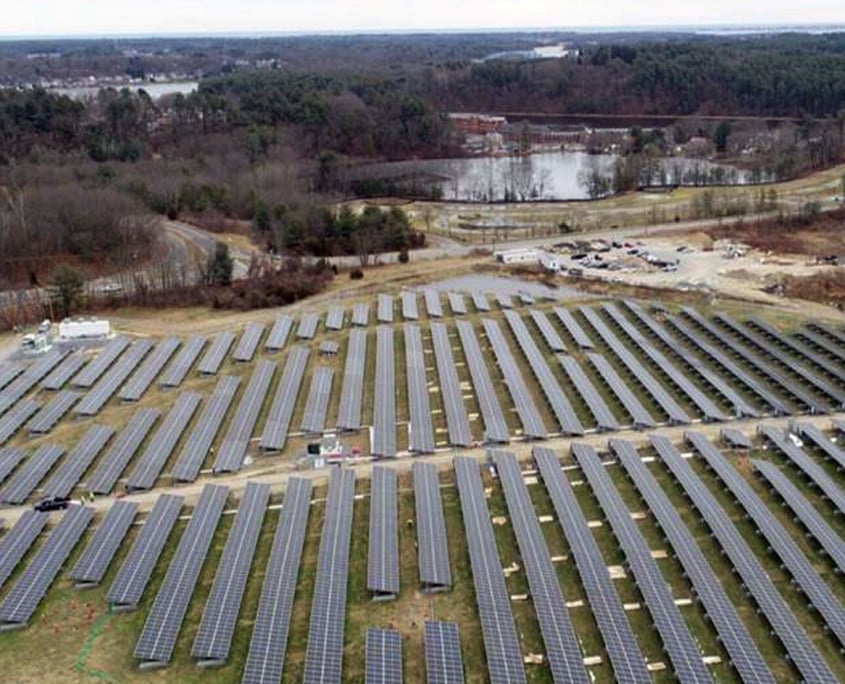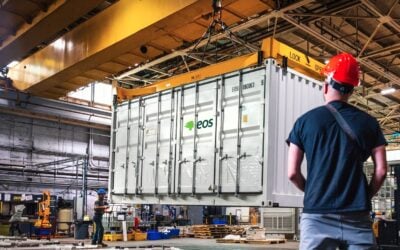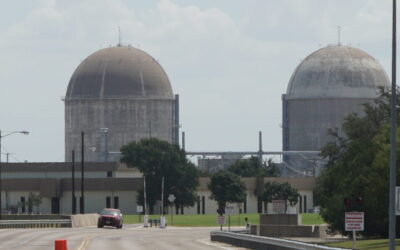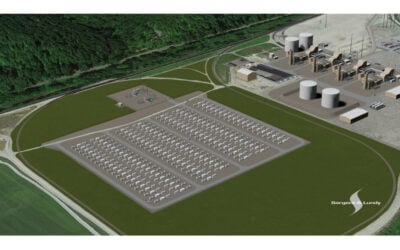
A municipal landfill in the City of Amesbury, Massachusetts, has become the latest site to host a solar-plus-storage project under the state’s SMART programme to promote economically viable clean energy.
New England-headquartered renewables developer Kearsage Energy and the technology provider / system integrator division of NEC Corporation (NEC) have completed work on the 4.5MW solar PV array, combined with a 1.6MW / 2.8MWh AC-coupled battery energy storage system, the pair announced earlier this week.
Enjoy 12 months of exclusive analysis
- Regular insight and analysis of the industry’s biggest developments
- In-depth interviews with the industry’s leading figures
- Annual digital subscription to the PV Tech Power journal
- Discounts on Solar Media’s portfolio of events, in-person and virtual
The project’s partners also put numbers on the expected economic benefits. The City of Amesbury will save around US$4 million in municipal spending on energy over 20 years, panning out at US$200,000 or so every year. This is from a combination of energy credits, lease revenue and tax generated by the site’s operations.
Connected to National Grid, the battery and PV system will play into the New England ISO (NE-ISO) markets, which made provisions to enable energy storage to participate in its wholesale markets during 2019. Along with the Solar Massachusetts Renewable Target (SMART) incentive and the state’s Clean Peak Standard, which has put a higher value on low carbon-generated electrons injected to the grid at times of peak demand than fossil fuel power, the region became a hotbed of solar-plus-storage activity last year.
Public-private partnerships key to unlocking value
While Energy-Storage.news reported on multiple technology providers including NEC and Sungrow hitting that market last year, for Kearsage, this is the company’s first project to include energy storage as well as solar in a pipeline that Kearsage claims totals 250MW. Kearsage said it has built up partnerships with more than 40 public organisations in New England and in New York – and even more recently emerged hot market for battery storage – and the City of Amesbury is not exception.
“Our mission at Kearsarge is to develop sustainable energy solutions in public-private partnerships that boost local economies, provide budgetary relief for municipalities, and enhance community life using underutilised resources like landfills,” Kersage managing partner Andrew Bernstein, said.
“The Amesbury project is a superb example of how all those objectives can be met when municipal leaders are forward looking and open to win-win partnerships.”
NEC’s Energy Solutions division, which is incidentally also headquartered in Massachusetts, recently announced a master supply partnership with West Coast-headquartered ‘intelligent’ energy storage systems company Stem Inc. This week NEC said it is set to also conclude a Master Supply agreement deal with Kearsage, which will use the former’s NEC GSS Grid Storage Solution with Kearsage solar system projects.
GSS, in conjunction with NEC’s AEROS controls platform, can be used for both AC- and DC-connected applications. NEC was behind Massachusett’s first grid-scale standalone storage project, also for a municipal utility (Sterling Municipal Light Department) and completed in 2016. The company has said that that project served as a pathfinder in many ways.
Then, last year the company said that the contracting of six projects in New England (in Massachusetts and Maine, totalling 20MW), was evidence that the region’s municipal utilities are able to procure and put into operation unsubsidised energy storage systems which “pay dividends” for the communities they serve.






